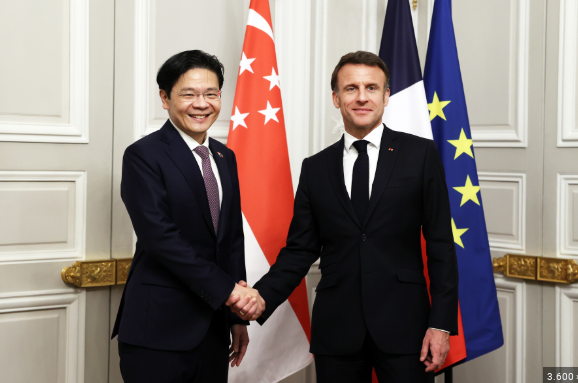A new chapter in the relationship focuses on sustainability, technology, and defense collaboration
Singapore and France have agreed to elevate their diplomatic ties to a Comprehensive Strategic Partnership (CSP), marking a new phase in their bilateral relations. This development was announced following a working dinner between Deputy Prime Minister Lawrence Wong and French President Emmanuel Macron on April 11, 2024.
The upgrade, set to coincide with the 60th anniversary of diplomatic relations between the two countries in 2025, reflects the desire to deepen cooperation in various sectors. France, which already has a Strategic Partnership with Singapore, is the only European Union member state to have such a relationship with the city-state. With the CSP, both nations aim to expand existing collaborations and explore new opportunities, particularly in the digital economy, defense, and green technologies.
One key initiative launched during Wong’s visit was the France-Singapore Joint Year of Sustainability (JYOS), a year-long series of events promoting cooperation in sustainable development. Running from April 2024 to mid-2025, the JYOS focuses on several areas of mutual interest, including renewable energy, the circular economy, and sustainability in the maritime domain.
Both leaders highlighted the excellent state of bilateral ties, noting that they were built on shared trust and mutual respect. Wong emphasized the significance of Singapore’s relationship with France, pointing out that the city-state has a military presence in France, despite not being a member of NATO. The collaboration between the two countries spans across sectors, from defense and security to economic and cultural exchanges.
The strengthened ties between Singapore and France also have implications for regional cooperation. During the dinner, Wong and Macron discussed initiatives such as the ASEAN Power Grid, aimed at integrating national power systems across Southeast Asia, reflecting the broader scope of collaboration between the two nations.
As both countries move forward with these initiatives, they will continue to work together to address global challenges, positioning themselves as key partners in the evolving global landscape.








